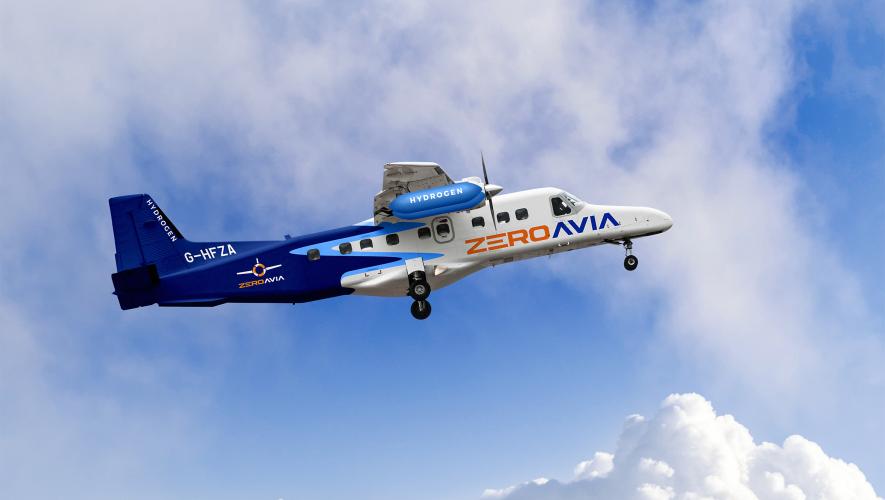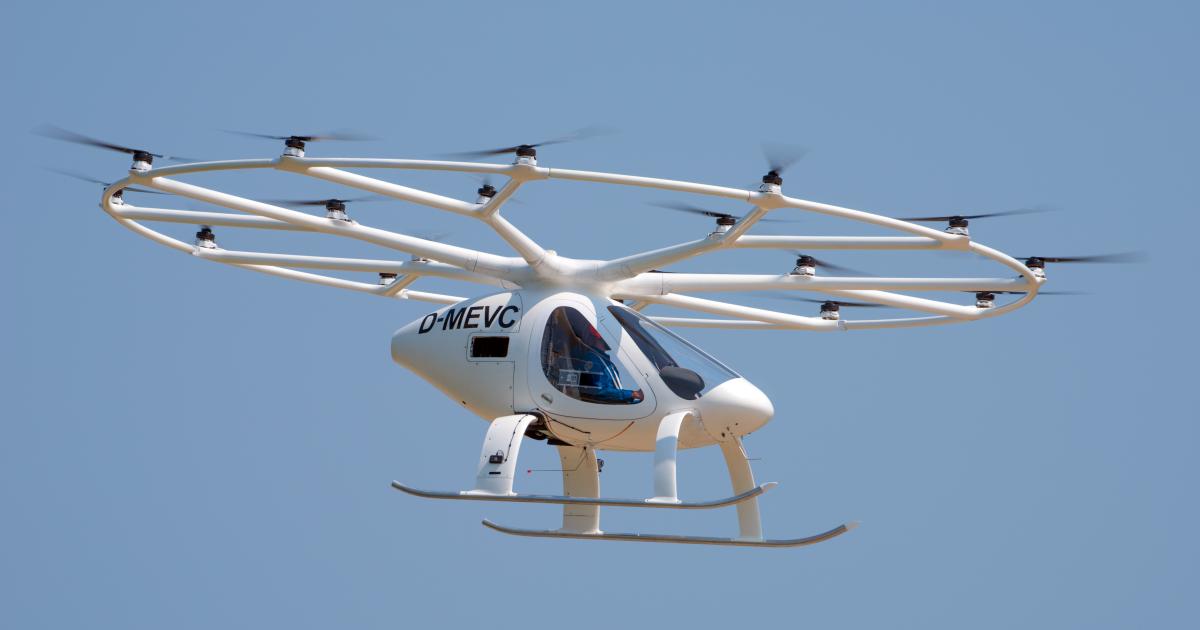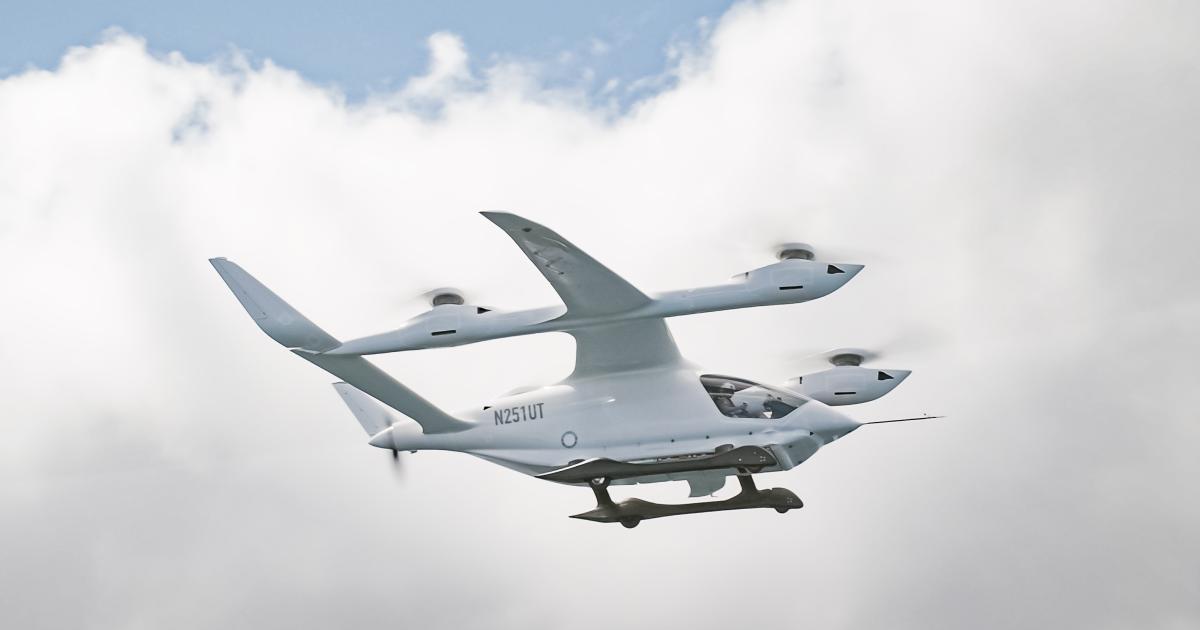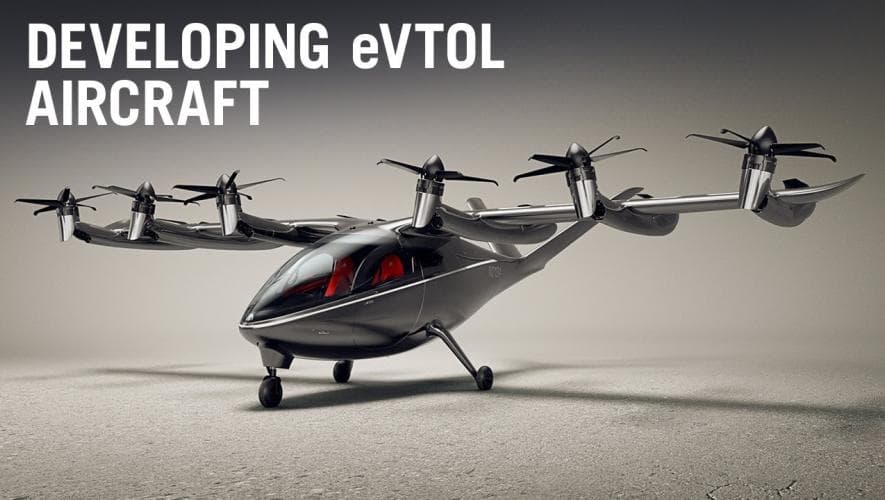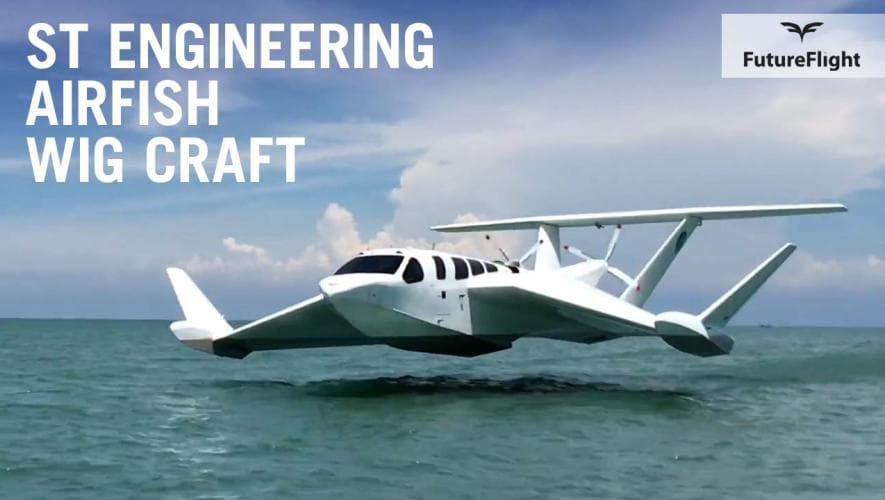FutureFlight
Latest FutureFlight Videos
All VideosFutureFlight News
Finance, Taxes, Insurance
German Politicians Stall eVTOL Loan Guarantee Approvals
Bavaria has blocked support for Volocopter and Lilium
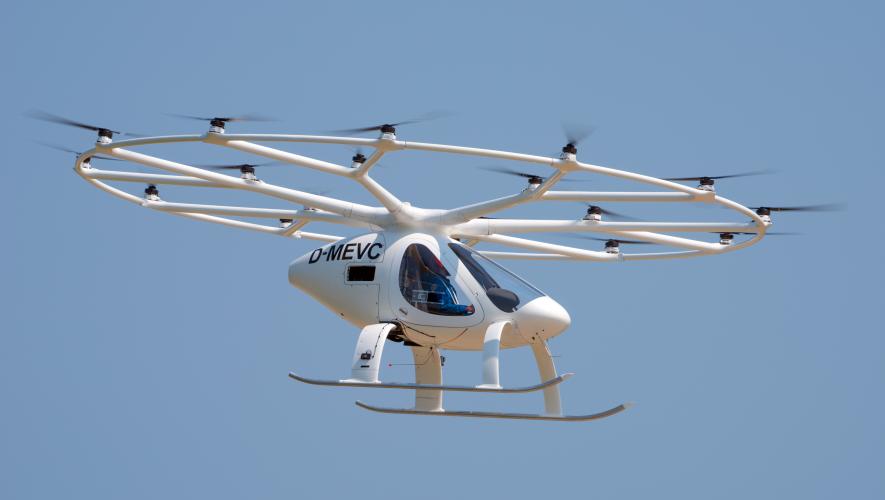
Engines
Wright Steps Up Ground Testing for 2.5MW Electric Motor
The company aims to convert 100-seat airliners and military aircraft to electric propulsion
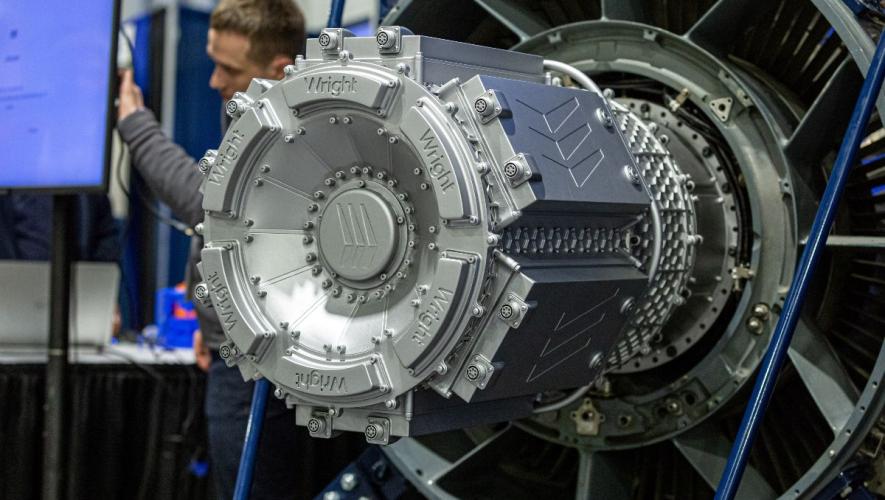
Charter & Fractional
Abu Dhabi Backs eVTOL Air Taxi Services With Archer and Joby
Local operators Falcon Aviation and Air Chateau will fly the four-passenger Midnight vehicle

Aircraft
U.S. Navy Assesses Electra eSTOL Aircraft for Ship-based Operations
The Army and Air Force are also eyeing the hybrid-electric aircraft
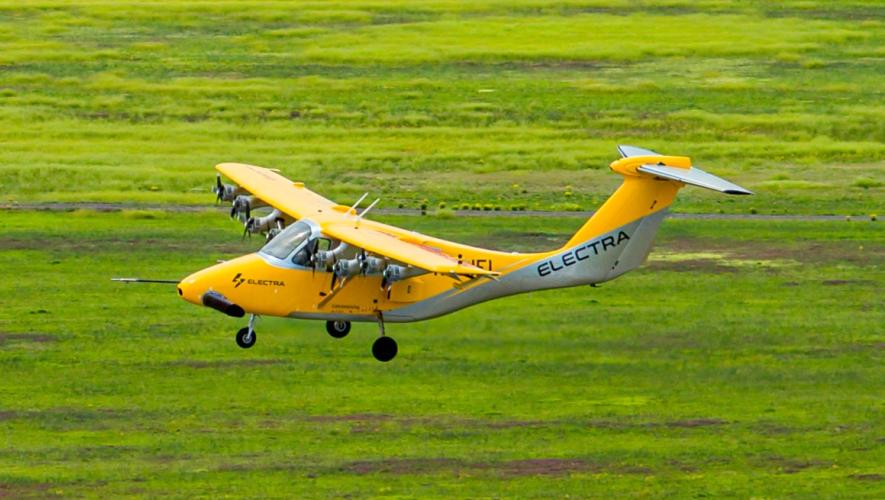
Aircraft
Japanese Charter Service Signs Deal with Eve for 50 eVTOL Aircraft
AirX plans eVTOL charter flights and sightseeing tours in Tokyo

Aircraft
Beta Achieves Piloted eVTOL Aircraft Transition Flights
Alia 250 eVTOL prototype aircraft achieves key transition from hover to cruise flight
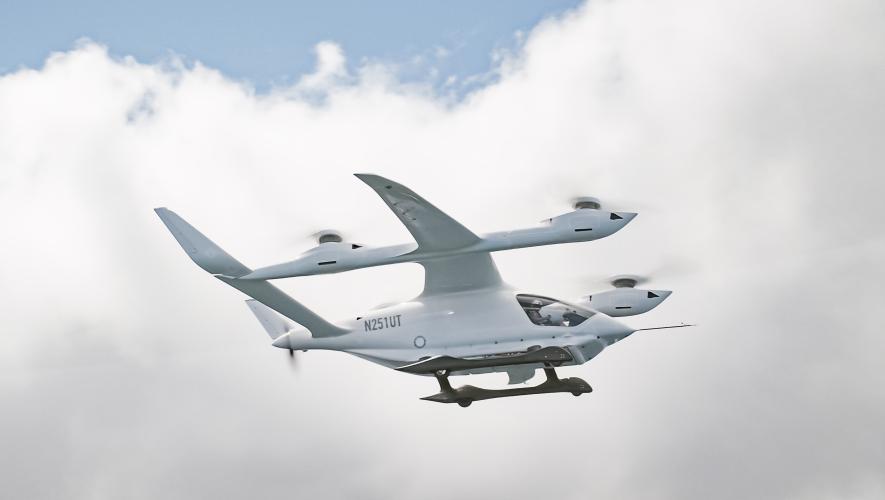
Aircraft
Electra Wins $1.9 Million Army Contract for Wind Tunnel Tests
Small Business Innovation Research contract explores blown-wing tech
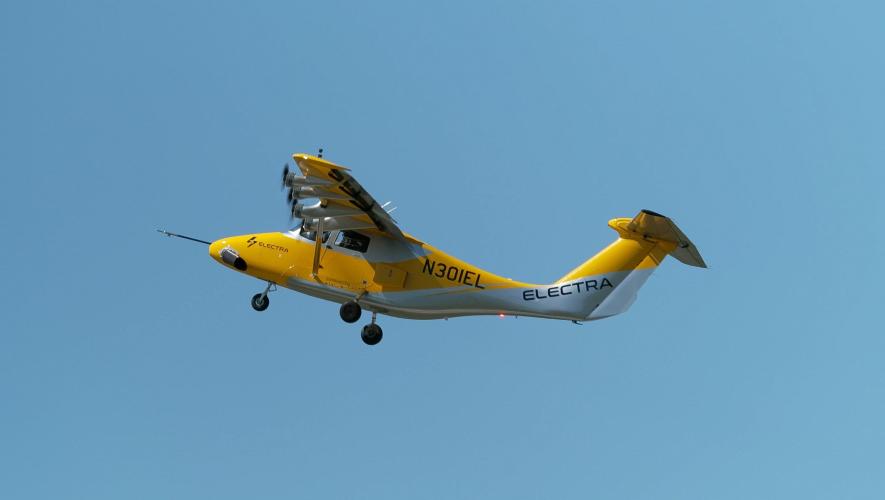
Aircraft
Aura Aero Secures First Integral E Customer in Norway
Norges Luftsportforbund will use the electric airplane to tow gliders
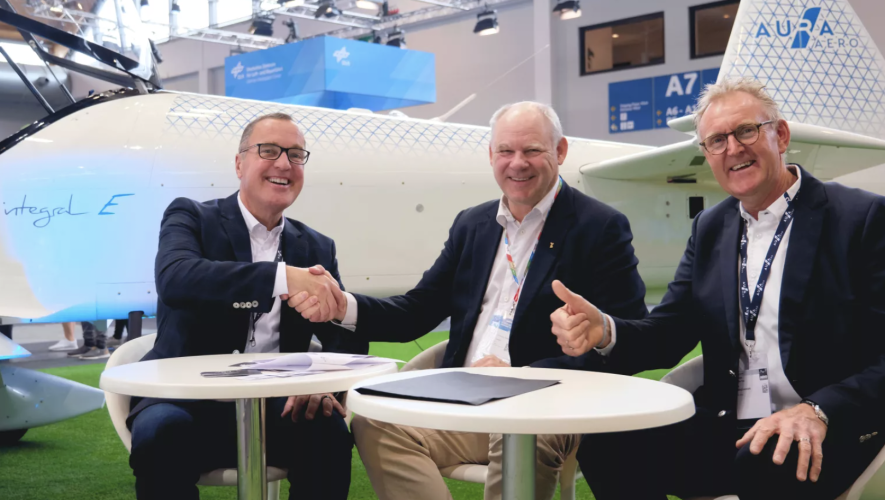
Safety
Beta's 'Charge Cube' Earns UL Safety Certification
UL certification verifies compliance with safety standards and regulations
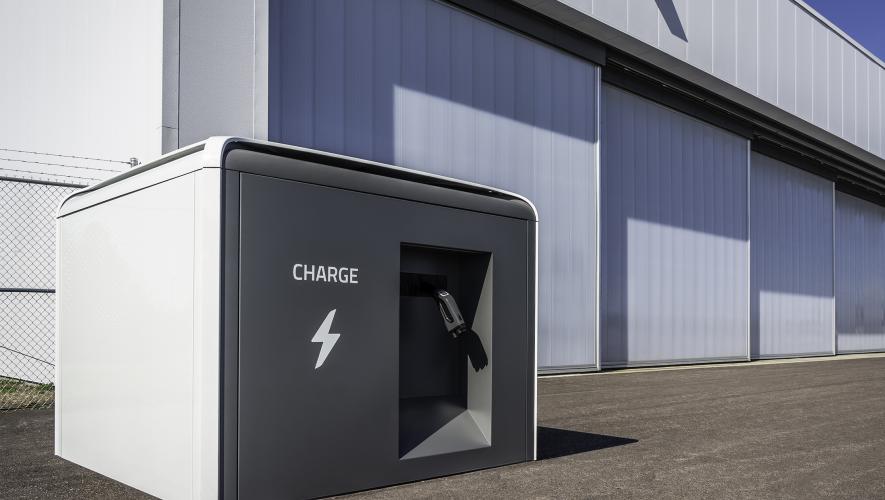
Regulations and Government
Archer Aviation Opens Policy Hub in Washington, D.C.
California-based eVTOL developer builds momentum for FAA certification

Regulations and Government
GAMA Outlines Path to Electric Aviation Future in Europe
GAMA released recommendations for regulators and policymakers to support electric aviation
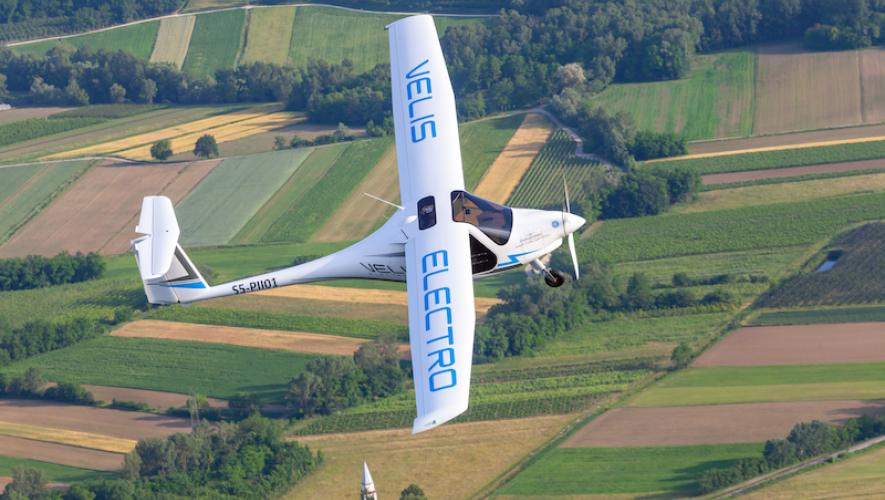
Aircraft
Lilium Kicks Off eVTOL Battery Pack Production
Assembly has begun in a factory at Lilium’s headquarters in Germany
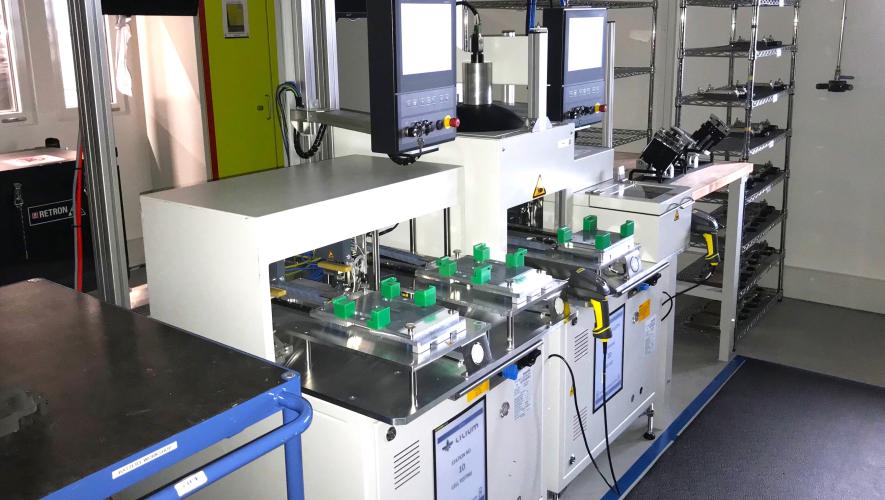
Engines
U.S. Air Force Backs VerdeGo’s VH-4T Hybrid-electric Powerplant
Afwerx funds VerdeGo's 400-kW turbine generator development
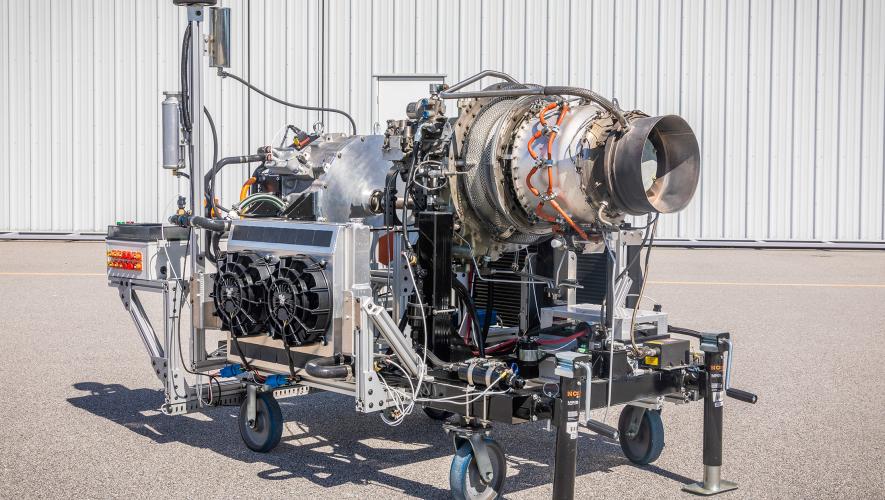
Airlines
Wilbur Air Will Operate Electra's eSTOL Aircraft in Australia
The operator is a spinoff from AAM infrastructure group Skyportz
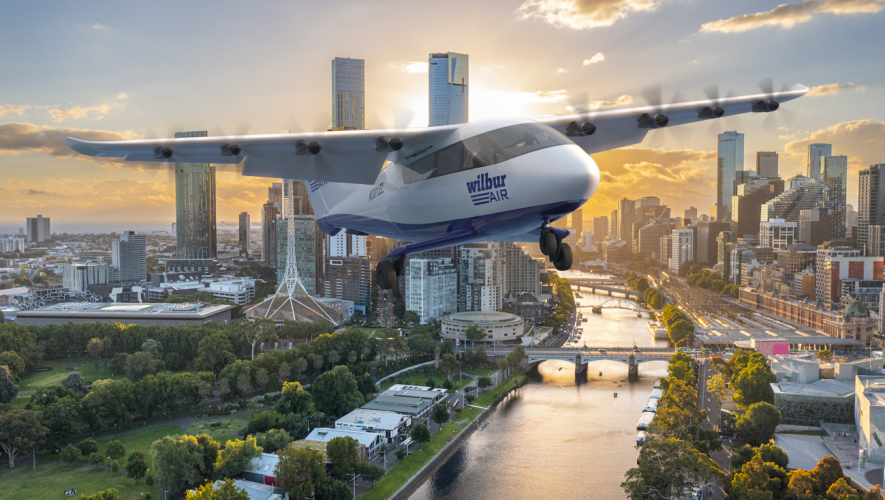
Engines
Australian Start-up Dovetail Electric Aviation Wins State Funding
The company has relocated operations from New South Wales
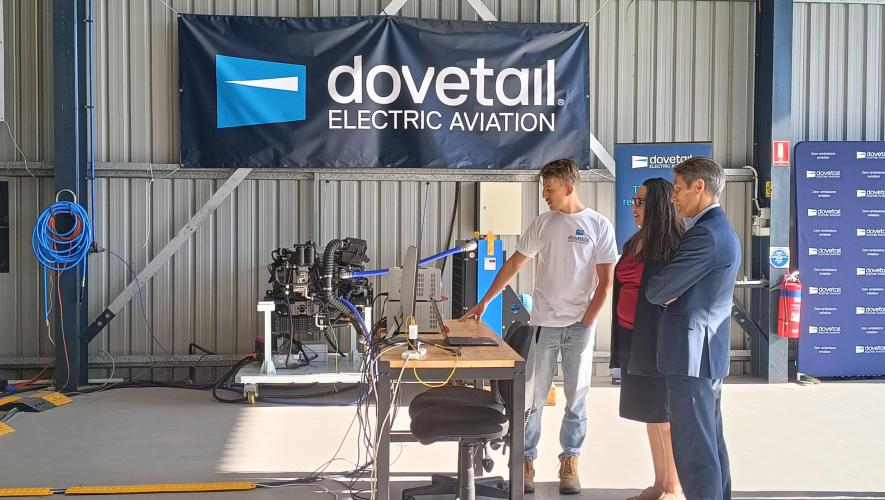
Aircraft
FutureFlight.aero Merges with AINonline.com News Platform
Platform provides comprehensive coverage of the advanced air mobility sector and more
Avionics
Merlin Accelerates Autonomous Flight Development with Simulator
The company's Certification System Bench means Merlin Pilot can be continuously tested

Charter & Fractional
Charter Operators Commit to Buying Electron Air Taxi
The four-passenger aircraft is expected to enter service in 2028

Aircraft
Textron eAviation Shows Off FAA-approved Velis, Works on Nexus eVTOL
Pipistrel subsidiary is driving electric aircraft innovation at the Textron division
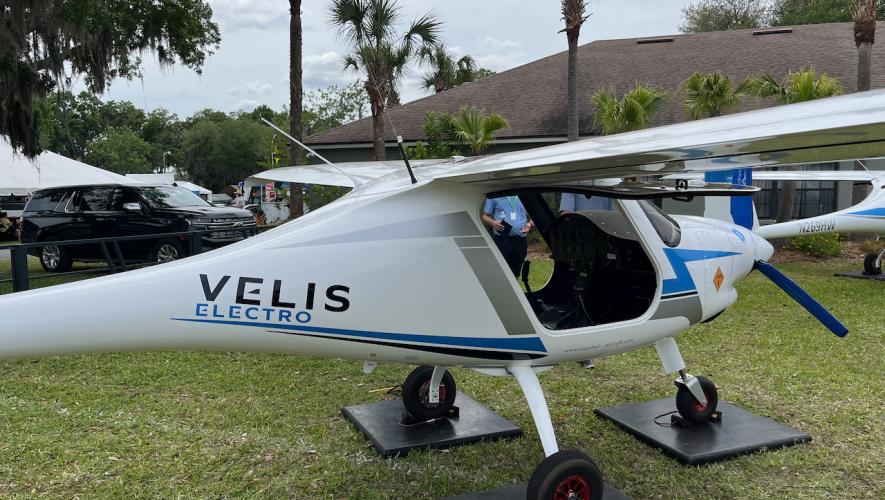
Maintenance and Modifications
Feam Aero Will Maintain ZeroAvia's Hydrogen Propulsion Systems
U.S.-based maintenance provider has 52 bases worldwide
